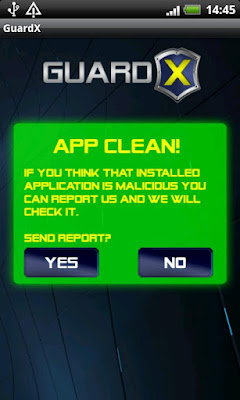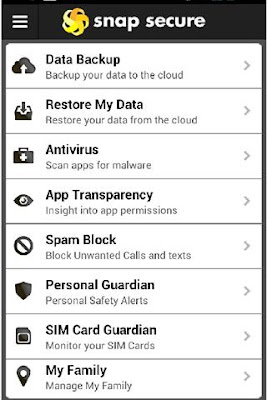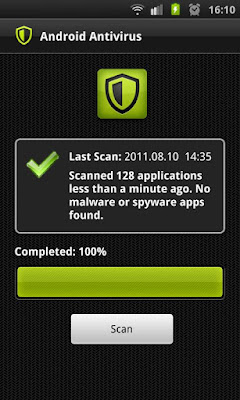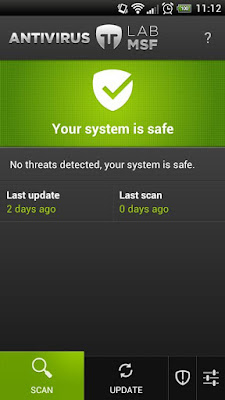Are you careful about the security of your smartphone? For your Android device, Google Play store offers a number of antivirus apps. There are paid and free apps from professional companies like Avast!, Kaspersky, and Lookout, as well as free antivirus apps that install and work relatively faster.
Among the security apps found on the Play Store, there are a number of free, lightweight ones, most of which enjoy a great number of downloads and high ratings. Most of the ratings are done by people who find the interface easy to use, but have no idea whether the app actually works or not. Many of us feel the app is great if the interface is cool, don’t we?
It is painful to note that most of these free apps not only fail at most antivirus tests, but experts regard them to be incapable of detecting any threat. Last year, the latest mobile antivirus test report was published by AV-Test.org, in which they tested and rated the best and the worst antivirus programs among multiple platforms.
We are now looking at the worst of antivirus apps on the Android store. These apps are still on the store because they may be able to detect one or two viruses along the way, and they are completely safe themselves, as found by Google’s malware detection system for the Play Store. That doesn’t mean that these apps are any bit effective. Let’s look at each of them based on popularity and ratings, and see how they fared in the antivirus tests.
This app has between 100,000 and 500,000 installs, and hundreds of five-star ratings. Out of the twenty test files, it has completely missed detecting one, and failed miserably in 10 others. It was successful in defending against only five of the threats.
This app has been installed between 100,000 and 500,000 times and has thousands of user recommendations. However, it has failed in 9 out of 20 antivirus file tests conducted by AV-Test. This makes the app highly ineffective in detecting viruses and malware. The important thing is that this antivirus has an upgraded internet security version that costs money. Definitely cash down the drain if you are purchasing it.
This antivirus app has had between 500,000 and 1 million installs from the Play store. Thousands of ratings for this app are in the five-star level. Still, it is at the bottom of AV-Test’s results, failing 13 of the 20 virus tests, and giving pretty poor results in three other tests. It was successfully able to prevent infection only in four of the test scenarios.
In between five and ten million downloads have happened for this app. Also, tens of thousands of people have rated it at five stars. And yet, it doesn’t even qualify the most basic levels of detection.
Out of the 20 malware tests it went through, it performed badly on 14 of them, among which it completely missed five files and gave poor results for the others. It was successful in detecting only three of the 20 test files.
This app has between 100,000 and 500,000 app installs. It has completely failed in 13 antivirus tests, and has not given any good result in other six tests. GuardX has been able to successfully detect only one of the twenty antivirus files sent to it. It is a free app and gives a pretty usable interface. As a result, hundreds of users recommend this product.
This app has pretty low rating given by AV-Test. It has not detected properly 13 out of 20 antivirus tests, and it has given poor results for the other seven. The app enjoys over 100,000 installs, and has been rated high by hundreds of users.
Having between fifty and a hundred thousand installs, this app has been rated great by over a hundred users. The app completely failed to detect fifteen of the twenty virus files given by AV-Test, and it hasn’t given any action against the other five.
This app seems quite popular with between one and five million installations. It is pretty lightweight and easy to use. Also, the people who are using this app have given it a pretty good rating, based on the usability. Does it really mean that this app is any good? Definitely not!
Android Antivirus doesn’t have a dedicated support team or a website that offers any quality updates. It is good at detecting a few malware and viruses, and is probably good at heuristic predictions. However, this is not the kind of security app that you should be running on your device.
AV-Test’s antivirus testing has placed this app at the very bottom when it completely failed to detect 17 out of 20 antivirus tests, and might have failed in the other three where the results were inconclusive.
This is the most downloaded free antivirus offering in the Google Play store, with anywhere between ten and fifty million times. The app is pretty lightweight as well at less than 4 MB in size.
In the AV-Test, it couldn’t detect fifteen of the twenty test files, and couldn’t take any action on the other five items. Still, due to the great-looking interface and ease of use, clueless users rate this antivirus high in the market.
At last we are at the rock bottom of virus detection capabilities. LabMSF has completely failed in all of the twenty antivirus tests, and AV-Test has remarked that it is doubtful whether it can detect any virus. Still, this app has between ten and fifty thousand users, and hundreds of them have recommended it.
Those were the worst of the antivirus apps you can ever get from the Android market. Despite their low ratings, they continue to be downloaded and rated by many users. It is painful to note that one or two of technology authors have included a few of these apps in their recommendations. You should not install these apps after looking through the reviews and ratings as most of the reviewers have no clue whether the app is useful or not.
Google Play store is fairly secure. Google’s support tells us:
Among the security apps found on the Play Store, there are a number of free, lightweight ones, most of which enjoy a great number of downloads and high ratings. Most of the ratings are done by people who find the interface easy to use, but have no idea whether the app actually works or not. Many of us feel the app is great if the interface is cool, don’t we?
It is painful to note that most of these free apps not only fail at most antivirus tests, but experts regard them to be incapable of detecting any threat. Last year, the latest mobile antivirus test report was published by AV-Test.org, in which they tested and rated the best and the worst antivirus programs among multiple platforms.
We are now looking at the worst of antivirus apps on the Android store. These apps are still on the store because they may be able to detect one or two viruses along the way, and they are completely safe themselves, as found by Google’s malware detection system for the Play Store. That doesn’t mean that these apps are any bit effective. Let’s look at each of them based on popularity and ratings, and see how they fared in the antivirus tests.
10. BluePoint Security Free
This app has between 100,000 and 500,000 installs, and hundreds of five-star ratings. Out of the twenty test files, it has completely missed detecting one, and failed miserably in 10 others. It was successful in defending against only five of the threats.
9. G Data Antivirus Free
This app has been installed between 100,000 and 500,000 times and has thousands of user recommendations. However, it has failed in 9 out of 20 antivirus file tests conducted by AV-Test. This makes the app highly ineffective in detecting viruses and malware. The important thing is that this antivirus has an upgraded internet security version that costs money. Definitely cash down the drain if you are purchasing it.
8. TrustGo Antivirus
This antivirus app has had between 500,000 and 1 million installs from the Play store. Thousands of ratings for this app are in the five-star level. Still, it is at the bottom of AV-Test’s results, failing 13 of the 20 virus tests, and giving pretty poor results in three other tests. It was successfully able to prevent infection only in four of the test scenarios.
7. ALYac Android
In between five and ten million downloads have happened for this app. Also, tens of thousands of people have rated it at five stars. And yet, it doesn’t even qualify the most basic levels of detection.
Out of the 20 malware tests it went through, it performed badly on 14 of them, among which it completely missed five files and gave poor results for the others. It was successful in detecting only three of the 20 test files.
6. GuardX Antivirus
This app has between 100,000 and 500,000 app installs. It has completely failed in 13 antivirus tests, and has not given any good result in other six tests. GuardX has been able to successfully detect only one of the twenty antivirus files sent to it. It is a free app and gives a pretty usable interface. As a result, hundreds of users recommend this product.
5. Snap Secure
This app has pretty low rating given by AV-Test. It has not detected properly 13 out of 20 antivirus tests, and it has given poor results for the other seven. The app enjoys over 100,000 installs, and has been rated high by hundreds of users.
4. Android Defender Virus Shield
Having between fifty and a hundred thousand installs, this app has been rated great by over a hundred users. The app completely failed to detect fifteen of the twenty virus files given by AV-Test, and it hasn’t given any action against the other five.
3. Android Antivirus
This app seems quite popular with between one and five million installations. It is pretty lightweight and easy to use. Also, the people who are using this app have given it a pretty good rating, based on the usability. Does it really mean that this app is any good? Definitely not!
Android Antivirus doesn’t have a dedicated support team or a website that offers any quality updates. It is good at detecting a few malware and viruses, and is probably good at heuristic predictions. However, this is not the kind of security app that you should be running on your device.
AV-Test’s antivirus testing has placed this app at the very bottom when it completely failed to detect 17 out of 20 antivirus tests, and might have failed in the other three where the results were inconclusive.
2. NQ Antivirus Free
This is the most downloaded free antivirus offering in the Google Play store, with anywhere between ten and fifty million times. The app is pretty lightweight as well at less than 4 MB in size.
In the AV-Test, it couldn’t detect fifteen of the twenty test files, and couldn’t take any action on the other five items. Still, due to the great-looking interface and ease of use, clueless users rate this antivirus high in the market.
1. LabMSF Antivirus Beta
At last we are at the rock bottom of virus detection capabilities. LabMSF has completely failed in all of the twenty antivirus tests, and AV-Test has remarked that it is doubtful whether it can detect any virus. Still, this app has between ten and fifty thousand users, and hundreds of them have recommended it.
Conclusion
Those were the worst of the antivirus apps you can ever get from the Android market. Despite their low ratings, they continue to be downloaded and rated by many users. It is painful to note that one or two of technology authors have included a few of these apps in their recommendations. You should not install these apps after looking through the reviews and ratings as most of the reviewers have no clue whether the app is useful or not.
Google Play store is fairly secure. Google’s support tells us:
We regularly scan Google Play for malware, and applications that contain malware are removed. We may also ban developer accounts that violate our policies.That means you are less than likely to install a harmful application on your smartphone from the app store. Also, if you are keeping your phone’s firmware updated regularly, your data should be very secure. Still, hackers will invent newer ways to bypass detection, and hence, it is important to install a good security app on your phone.









